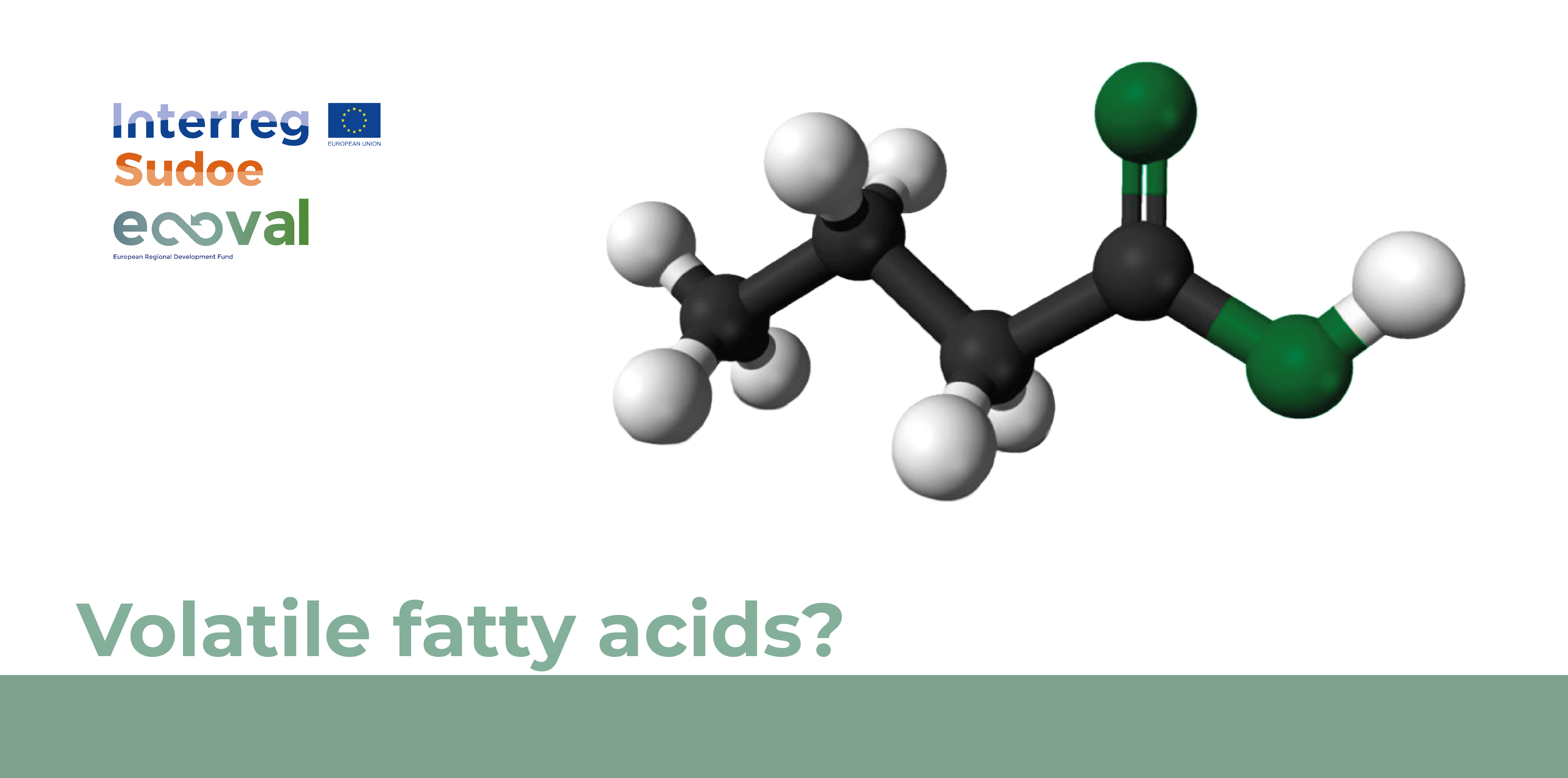
Volatile fatty acids (VFAs) are organic compounds with six or fewer carbons in their structure. Although these terms are unfamiliar to the general public, they can be found in nature, usually as a result of bacterial processes such as anaerobic digestion. Given their high energy value, VFAs are a common part of animal metabolism, and such is their versatility that they can be found in vinegar production (acetic), food flavorings (butyric), or preservatives (propionic). At present, volatile fatty acids are almost entirely obtained from fossil resources, which has a very high environmental impact.
However, these VFA can be produced through biological processes that have been developed in recent decades and for which new, more efficient, and precise routes are still being found. Moreover, they belong to the category of intermediate products, i.e. they can be converted into a wide variety of end products (plastics, paints, lubricants, cosmetics, etc.) depending on the selected processes. This flexibility in production and conversion is one of the reasons why the demand for VFAs in the chemical sector is growing steadily.
The ECOVAL SUDOE project develops technologies for the production of these acids from sewage sludge and bio-waste generated in the urban environment. The project thus promotes the biorefinery or biofactory model, a new concept of facilities that generate high added-value by-products from waste. From these substrates, short carbon chains are obtained, volatile fatty acids, which in the case of ECOVAL are preferably acetic, butyric, and propionic.
The renewable origin in AGV production still represents a tiny fraction, so it is essential that the development of solutions based on the circular economy as proposed by ECOVAL, fully aligned with the objectives of the European Union to be the first climate-neutral continent in 2050.
Interesting, isn’t it? Here you can read how work has started in the project’s pilot plant.

